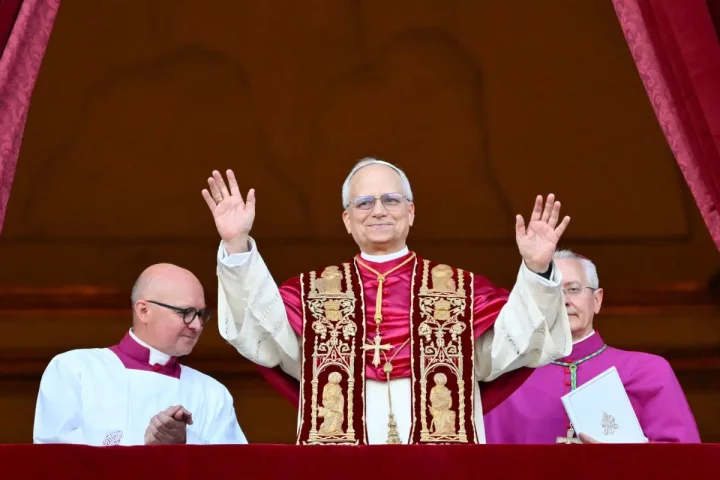![Young Catholic men are now less likely to decide to become priests [Freepik] Young Catholic men are now less likely to decide to become priests [Freepik]](https://static.netnaija.com/i/4E7zAlBkKb6.webp)
With fewer church buildings, fewer pastoral positions, and less money for social purposes, the decline in the number of believers is affecting many areas of life in Germany.
Many dioceses and regional churches are already selling buildings - they are not only becoming unnecessary, but are also an increasing burden on the shrinking church budget.
The loss of faithful in both large churches continues. The Catholic Church in Germany lost around 592,000 members last year, the German Bishops' Conference in Bonn reported on Thursday, June 27, 2024.
In turn, the number of believers in the Evangelical Church decreased by approximately 593,000. As of December 31, 2023, approximately 20.3 million people belonged to 27 Catholic dioceses, while approximately 18.6 million people belonged to the Evangelical Church.
The decline in the number of believers also has a long-term impact on church tax revenues and therefore on the finances of churches. Many dioceses and regional churches are already pursuing austerity policies. This has implications for church buildings, pastoral positions and social welfare activities.
Size of the parish and parish positions
Many Catholic dioceses and regional churches are currently merging their parishes. This applies to both urban and rural parishes. The reason for this is often not only the shrinking number of faithful, but also the lack of new priests in the parishes.
The Evangelical Church in the Rhineland, the second-largest Protestant regional church, decided in January to halve its parish positions to 700 by 2040. This is due to the large number of baby boomers retiring in the coming years and the low number of new recruits. Recruiting new priests is also a problem for 27 Catholic dioceses. According to the German bishops' conference, 297 men currently attend seminaries.
According to analyses presented in May, young Catholic men are less likely to decide to become priests. According to researchers, the trend of secularisation of society is leading to a shrinking of the social group from which candidates for priests currently come.
Church buildings
Whether it is church buildings, parish houses or rectories - many dioceses and regional churches are already selling buildings because they are no longer needed or because their maintenance has become expensive.
In mid-June, the EKD (Evangelical Church in Germany) and the German Bishops' Conference declared that many places of worship will no longer be needed for worship. This poses a serious challenge for both churches.
Since mid-May, 17,000 people have signed the manifesto which calls for the preservation of architectural heritage.
Schools, kindergartens, hospitals
Already in 2020, the decision of the Mainz diocese to get rid of five schools under its patronage made headlines. The reason: lack of money. Due to the lack of income, funds for church kindergartens, nursing homes and hospitals are also running out.
Religious scholar, Detlef Pollack, illustrates this using the example of evangelical kindergartens. While it is true that kindergartens and other church institutions largely receive funds from the state, this is not entirely sufficient. 10% of the costs are covered by the appropriate leading evangelical entity. Every year, the Evangelical Church alone spends approximately €300 million on financing kindergartens. As many as one fifth, or two out of ten children, attend such kindergartens.
Christian traditions
Pollack has noticed an increasing anti-religious tendency in society over the past five years. The awareness of the significance of church holidays is decreasing. At the same time, some people in the church are becoming aware of how important it is to maintain church traditions.
Among the few who actually still attend church on Sundays, it is highly valued. Those who are involved in social work in the church say that there is mutual respect there. This is a part of the faithful who actually still have an idea about it.
"The rest often have strongly held opinions about the church. But they no longer attend school and therefore have no opportunity to correct their prejudices," says the expert.













.jpg)



Comments